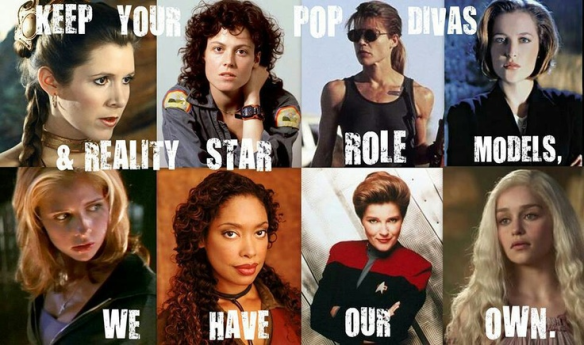Dear Readers,
I’m going to post the first segment of my novel here because some of the people in the ABNA contest wanted to read it after I was eliminated from the contest due to one of my two reviewers stating that GLBT characters had no place in a novel for middle schoolers, and should only be secondary characters in young adult fiction for teens. Some of this is new content, or more refined though, so if you have read it before, have at it again!
The Marvelous Adventures of Sebastian Smith
Book One: To The Dragon’s Lair
Prologue
In which a maiden is not saved
The sun was just beginning to rise when the Dragon crested the hillside. It was an accepted fact that any maiden, offered to the Dragon, if she survived from sundown until tea time the next day, would be freed and a new, more pleasing sacrifice chosen. You can imagine Millicent’s disappointment then when the great scaly beast came looming over the top of Hagar’s Hill.
The huge body was held aloft by great wings which looked to her as if they were two sheets of unspoiled night, preserved unharmed from the killing grasp of dawn’s first light for the specific purpose of bearing the monster to her. It was a poetic thought, and Millicent was proud of it. When she survived the Dragon’s visit, she resolved to become a roaming poet instead of a house wife; though she was certain the town would feel as great a sense of loss for her wanderings as they would for her death.
The Dragon, in most cases, was merely offered a small tribute of common items. Once a year the signal would come that the scaly hoarder was ready for his annual donation of old furniture, excess bric-a-brac, and unwanted itchy knit sweaters. Of course, the villagers gathered together in their finest mourning clothes and wailed over the useless trash, to be sure the Dragon thought they were offering him their very most prized possessions. However, once in a great while, the Dragon would indicate its thirst for something more valuable than the overflowing contents of a junk drawer, and which the villagers were, in fact, rather reluctant to part with.
Sometimes the Dragon demanded a maiden.
As the Dragon streaked through the pre-dawn sky, Millicent thought it was odd that her heart was beating so hard. It was a formality that she was out here at all. She was the mayor’s daughter, and if it hadn’t been for certain farmers (with droves of utterly dull daughters just perfect for sacrificing) pointing out that her own family hadn’t offered a maiden to the Dragon in twenty-five years, she wouldn’t be tied to a stake in the middle of a field at all.
The Dragon seemed to be getting awfully near now, and Millicent wondered just how close it could get to her in light of the extraordinary measures her father had taken to ensure the beast left her alone. Despite the fact that the Dragon had, for the past fortnight, been ceaselessly demanding maiden sacrifices which the monster then ignored entirely, her father had insisted on hiring a specialist; a traveling doctor with extensive dealings in draconic physiology who had consulted the family immediately upon her selection to be sacrificed, and developed a complete plan of action designed to deter the devouring intent of any reptile great or small.
The specialist had given her every countermeasure imaginable. She had no less than six amulets and charms designed to ward away various aspects of draconic myth, from talons to fire breath. She was wearing a dress made of strictly dyed green cloth, a color which the doctor assured her father dragon eyes could not detect. She was bound to a stake made of yaupon wood, the oil of which was said to irritate dragon scales. She had even washed her hair, the most beautiful blonde hair in three counties, with shampoo made from vinegar, rosemary, and calf’s blood, so that any dragon noses she encountered would be stunned by her stench, and any dragon stomachs would be nauseated.
It was unfortunate for Millicent that none of these remedies would prove effective against this particular Dragon. Indeed, I would be quite surprised to learn they had worked against any Dragon at all, though perhaps they would prove quite effective against common garden snakes, or tree lizards. At any rate, I could not encourage attempting any of these remedies as prevention of any kind, especially against lethal threats, particularly monstrous lethal threats.
The Dragon landed with a great rush of wind. The ground shook beneath its sudden weight, and Millicent let out a maidenly scream in spite of her supposed invulnerability. The sky was just changing from pale black to dark grey, but Millicent thought she could see the Dragon’s dark scales sparkling none-the-less.
The long neck snaked out, the gigantic head hovering mere feet above Millicent.
As the two great nostrils flared wide, Millicent thought very stinky thoughts.
However, the Dragon did not recoil. It lowered its head so that its two glowing red eyes could lock onto Millicent’s own.
She tried her best to look green.
One great claw lifted up slowly, talons glittering as the sun finally crested the edge of Hagar’s hill, lighting the great Dragon from behind. As it gently wrapped its great fist around Millicent (and the Yaupon stake), she waited for the instantaneous appearance of hives or boils or cracks or…something…on the dragon’s forearm.
The Dragon’s scales stayed frustratingly healthy looking.
And as the Dragon opened its toothy mouth wide, and Millicent saw the flames glowing in its deep throat, for the very first and last time in her life thus far, she was too stunned to think one single thought about herself.
CHAPTER 1
In which our story begins with laundry, as promised
The story of Sebastian Smith begins with a faded and slightly soiled blue shirt.
The shirt was not Sebastian’s, but rather belonged to Roland Baker, the boy whom Sebastian had quite accidentally fallen in love with. The shirt itself was not magical or even particularly well made. It wasn’t the sort of object you would expect to begin an adventure. But it belonged to Roland and smelled just a little like him and that was enough for Sebastian, who had stolen the shirt, which as you will see, is exactly what started it all.
However, though Sebastian’s story does truly and honestly begin with the pilfered shirt of Roland Baker, you my dear readers must come to the beginning by a different route. You must begin not with a soiled blue shirt, but with clean white underwear instead.
*******
The fingers of twelve year old Sebastian Smith gently grazed the stiff fabric of Mrs. Geldeblat’s crisp white under-girdle. Feeling his face flush, he strained further until he was able to barely hook his fingertips into the knotted lacing which would normally be used to pull the garment tight around Mrs. Geldeblat’s round stomach. With a tremendous effort he heaved himself to the side and tugged the oversized underwear close to his chest, panting as he pressed his face into the rough shingles of the roof on which he lay.
From the ground below, Mrs. Geldeblat barked, “Don’t just lay there Sebastian! Now my girdle isn’t flapping like a flag in the breeze, get back down here! You’ve still got to clean the rest of this mess up!”
Sebastian sighed, carefully raising himself up on his hands and knees to crawl towards the edge of the roof where he could drop down onto the balcony of the Baker’s shop below. The shame at dragging the enormous underwear down to the street had sharply dulled his excitement at being in a building owned by the uncle of Roland Baker (whom you will remember was important to Sebastian). He found the bulk of Mrs. Geldeblat’s girdle made his journey down much more complicated than his climb up. Though he was very frustrated with Mrs. Geldeblat, not only for her large garments, but also for her ceaseless stream of comments and orders, he knew that really he had no one to blame but himself for the disaster strewn over the village square below.
In the small, seaside village of Hilsbac in which Sebastian lived, there were, as in most villages, a great many problems. As the thorough reader already knows, these problems included giant fire-breathing reptiles among others. And had you seen Sebastian, a boy of meager size, with ears that were just a little too large, and feet that were just a little too small, I imagine you might have thought he wasn’t capable of handling very many problems at all.
The other people who lived in Hilsbac shared this very opinion, and as a result, Sebastian Smith was not allowed in the general vicinity of difficulties of any notable size. He was not, for instance, permitted to go out hunting with the men as most other boys who had lived more than ten winters were. Nor was he welcome on the swift fishing boats that cut through the waves near the docks. He was not trained to stand watch in the high towers of the village wall, nor was he skilled with the heavy iron swords of the village guardsmen.
In fact, there was only one small problem, composed of several challenges, which Sebastian was allowed to even attempt solving. He was permitted, without exception, to choose his own clothing and to eat all of his own food. He was allowed to bathe when he smelled, and to sleep when he was tired. He tended always to the complaints of his own body, and only on the rare occasion of a scraped knee or a bad winter fever, did he ask for any assistance at all.
Yes, by and large Sebastian helped the village by doing his very best to handle the only small problem the villagers would allow him to solve: himself.
But Sebastian was not content to solve only the problems he was allowed to. Though he readily admitted there were perfectly good reasons to keep him away from large challenges or complicated troubles, he still felt there were plenty of smaller issues, like obstacles, or quandaries which he could easily address if only he were given the chance.
As Sebsatian swung his small body out over the gutters of the Baker’s Shoppe and scrabbled for a few moments with his too-small-feet to find the ledge of the balcony below, (with Mrs. Geldeblat hollering the whole time about broken legs and cracked skulls being no fair excuse not to clean up his mess), he supposed it was this very thought (that he should solve the biggest problems he was able) which had caused Mrs. Geldeblat’s girdle to be launched to the top of the Baker’s shop in the first place, not to mention Mr. Sander’s work coat, Mrs. Threshton’s best sun dress, and little Amelia’s patch-kneed play clothes, all of which were scattered in equally unique and inconvenient locations around the town square.
Sebastian, as you may have guessed, had most recently attempted to solve the problem of the village laundry. It might seem strange to you that the village of HIlsbac had a laundry problem at all. Laundry in the world you and I live in is a very personal problem, consisting of machines, and sinks, and soap. However, in the world Sebastian lived in, laundry was still a very public problem. In order to save time, and water, most villagers brought their clothes to the village square once a week, and a group of sturdy women and awkward young girls (as well as Sebastian), gathered together to wash all of the laundry at once.
The specific problem which Sebastian had so recently, and disastrously, attempted to solve was the problem of drying. It was a small problem really, but one that was always sure to cause at least one argument amongst the old women in charge of the communal wash. You see, in the entire village square, there was only one corridor down which the salty sea breeze almost always blew, which was at the same time not darkened by the shadow of a nearby building for most of the day. This section of street was naturally the most effective at drying clothing hung within it. However, it was not nearly large enough for all of the clothes to be hung in, which meant that most of the clothing had to be dried either in the shady breeze or the windless sunshine.
It was nowhere near as big a problem as fire-breathing reptiles, but nevertheless, it was the problem Sebastian attempted to solve. He had done so with great effort on his part. Not only had he constructed a massive and complex system of rotating ropes, lashed together through rusted old pulleys salvaged from the castoff bits of ships that had long since set sail from the docks, but he had also convinced Mrs. Geldeblat to allow him to attempt to solve the problem at all.
Mrs. Geldeblat, who had been in charge of laundry for as long as Sebastian had been alive, had been very difficult to convince.
As he scrabbled over the open attic windowsill of the Baker’s shop and into the narrow stairway which led to the floor below, trying hard to keep the white fabric of the girdle he carried from trailing in any more dust than it already had, Sebastian was certain he would never be able to convince Mrs. Geldeblat to let him try anything ever again.
While concealed safely in the staircase, Sebastian tried to puzzle out what had gone so terribly wrong. He was so sure the idea was a good one. It had seemed so simple to him. If the problem was that only some clothes got to be both in the sun and the breeze, the solution was to make it easy to rotate all the clothes equally through the good spot. It seemed fair, and he thought it would make the whole process of doing laundry faster for everyone. And at first it had gone so well! The clothes had started rotating into the sweet spot on their ropes just as he thought. But then somewhere between Mrs. Thurston’s best sun dress, and Amelia’s patch-kneed play clothes, one of the garments hit a snag. Sebastian thought it was just a little bump, and so had continued to tug valiantly on the rope, never realizing how much tension he was building, until, with a crack like a whip, the main line snapped and still damp garments exploded in every direction.
After the initial shock of the disastrous laundry upheaval, Sebastian now sorely wished that he could have prevented the sudden snort of laughter he had let out when Mrs. Geldeblat had discovered her enormous underwear flapping in the wind, caught on the highest corner guttering of the baker’s shop. But he hadn’t, and with Mrs. Geldeblat’s face turning roughly the same ruddy red shade as Mrs. Tawning’s favorite blouse, Sebastian had scurried into the baker’s shop to retrieve the embarrassing large garment, though he did note it was flapping directly into the sweet spot.
As he was tip-toeing slowly down the narrow staircase, drawing out each step to delay his inevitable meeting face to face with Mrs. Geldeblat, Sebastian stopped entirely when he heard the hushed voices of the Baker and his assistant wafting up through the loose boards of the stairs beneath his feet. His feet felt stuck entirely, as if there were glue on the stairs. Sebastian had become caught in the sticky sonic snare of voices speaking with the softness of secrets.
“Did you hear about poor Millicent Cobblestop?”, came the furtive voice of the young Baker’s Assistant. Sebastian thought his name was Brennan or Brandon or Bradley.
“Aye, boy. I was there when the poor Threshton boy had to give the report to the mayor himself. Was delivering the morning pastries to Mrs. Cobblestop. You’ve never heard such terrible girlish sobbing in all your life…”, replied the Baker, (who everyone in the village knew simply as the Baker).
“Oh…was Mrs. Cobblestop there too?”, gasped the Baker’s Assistant.
The Baker snorted, “Nay. Twas the Mayor’s girlish sobbing I’m referring too. But who could blame him after what poor Henry Threshton had to report. Twasn’t just her death…but the manner of her death…all ash and grease on the field…it’s just not right.”
Brennan or Brandon or Bradley was silent for a long moment, and then asked with a catch in his voice, “But…sir…if the Mayor set his daughter out for the Dragon to come claim…wouldn’t he have expected that sort of report from Henry?”
The Baker let out a sigh, “I suppose you’re too young to really remember how a maiden sacrifice works. It only happens once every few years afterall. You were what…six or seven the last time a maiden was offered?”
“Five, sir. I was five winters then.”, the Assistant said.
“Then you probably don’t know how things normally go. If the Dragon finds the maiden…well… let’s say suitable, then he swoops down out of the sky and grabs her in his huge claws and off he flies with her. He’s never…uh…done the deed right there in the field. And most years, after he flies over a few maidens he doesn’t like, he just stops asking”, The Baker said.
Brennan or Brandon or Bradley asked, “You mean the Dragon Stone stops glowing?”
“Aye, but since the beast claimed Millie it hasn’t so much as dimmed. Even after charring the poor girl worse than a loaf left in the oven all afternoon, the Dragon still wants another sacrifice. This hasn’t happened before. Ever.” The sound of the Baker pulling a heavy stone plate out of the enormous oven muffled his reply to Brennan or Brandon or Bradley, and the strong smell of freshly baked bread wafted up into the attic staircase, causing Sebastian to shift with sudden hunger.
The voice of the Baker’s Young Assistant cracked as he asked, “What’ll we do? Wh-what if we run out of maidens?”
Sebastian heard the Baker snort, “There’s a special council in two days’ time to decide what to do. It may be the biggest problem we’ve ever had, but we’ll just have to figure it out together.”
Sebastian twisted the handle to the attic door and stepped out into the back room of the Baker’s Shop, quite disturbed by the news he had heard. His mind swam with thoughts of what the Dragon’s deadly new behavior would mean, not just for the village, but for the other young girls, and especially for his two older sisters. Without thinking about how strange it would seem that he was joining in the middle of their conversation, Sebastian felt himself drawn to the large Kitchen where the Baker and his Assistant were working. He might have wandered right into the middle of their worrying had the Baker’s Assistant not chosen that exact moment to break the tension in his own way.
What Sebastian heard that woke him from his trance of concern was Brennan or Brandon or Bradley saying with a smile in his voice, “I guess we could always ask the weird laundry kid up on the roof what he thinks we should do, eh?”
The words stopped Sebastian in his tracks. He realized all at once where he was, and was grateful that he hadn’t yet rounded the corner into the kitchen. After four very awkward moments of silence, the sturdy laughter of the Baker echoed through the shop, and Brennan or Brandon or Bradley’s own short nervous bark of a laugh soon joined it. By the time they stopped laughing, their guffaws were joined by the muffled sound of their oven mitted hands slapping their thighs.
Sebastian squirmed with every passing second of laugher the two men indulged in at his expense, both unaware of his eavesdropping. He was unconsciously twisting Mrs. Geldeblat’s girdle into tight knots by the time the Baker, still gasping slightly for breath, said, “Aye, that’s who can save us. Young Master Girdle. Maybe he can tinker together a special pile of junk to confuse the Dragon away.”
Brennan or Brandon or Bradley added, “Maybe the Dragon’s secret weakness is lady’s underthings!”
As the Baker and his Assistantreturned to their laughing (which was actually quite a relief from their earlier grim conversation) Sebastian retreated silently into the back room of the Bake Shop. He felt very small, clutching in his hands the evidence of his laughably poor attempt to solve the village’s smallest of problems. And now the villagers would face the largest problem they’d ever faced, and Sebastian wanted to help too. But the townspeople intended to solve the problem together, and though he sometimes forgot, Sebastian knew that together didn’t mean him.
He made his shuffling way across the stock room floor, and reached the rickety wooden door into the alleyway behind the shop. The white fabric of Mrs. Geldeblat’s girdle which he had crumpled in his hands had caused his fingers to start throbbing. He paused to disentangle his digits from that stiff fabric before he stepped back into the cool alleyway, which was still slick with late autumn snow which the sun had not melted. With his hand on the door he tried to turn his attention back to the problem at hand, back to the problem of laundry, back to the problem of his own making. Surely he could solve that much.
What happened then might seem very strange to you if you were only to read it, just like that. What happened next was that Sebastian found a shirt, wadded and forgotten and blue in the corner of the Baker’s storeroom. Not an exciting event by itself; and one that might even be expected given the already unfortunate events surrounding clothing that had so recently occurred. However, this shirt was one that Sebastian recognized. It was a shirt Sebastian liked very much. Not because of the color or the cut, but because it belonged to the tall, broad-shouldered nephew of the Baker.
And suddenly, Sebastian found that he had forgotten all about the shame of his failed invention or the anger of Mrs. Geldeblat, or even the humiliation of his unintentional mocking at the hands of the Baker and Brennan or Brandon or Bradley. Sebastian had found something which his mind very much needed at that very moment. He had found an escape. Quickly snatching the shirt up into now-trembling fingers, and then bursting into the alley, he shoved the shirt into the small space behind a snow-covered stack of firewood. Then Sebastian scurried out into the village square, to clean up his mess as quickly as he could, returning and rewashing every last piece of exploding laundry; every last piece except one.
CHAPTER 2
In which we find our hero in a rather important alley
It took Sebastian nearly two more hours of vigorous acrobatics to retrieve and rewash all of the village laundry, and then to sneak back to the woodpile behind the Baker’s shop and retrieve that secret shirt which belonged to Roland Baker, and to arrive at last on his knees in the alleyway where our story begins.
Please accept my apologies, dear reader, for leading you down such a winding road to the start of it all, but you must understand how small Sebastian’s world was back then, so that you will understand why what he did seemed so very large. In all his years of life, the biggest thing Sebastian could ever remember doing was stealing the shirt of Roland Baker and sniffing it in the alley behind the Baker’s Shop.
Had I neglected to mention that Sebastian was sniffing the shirt? Well he was, at any rate, though the vigor and desperation with which he performed the procedure might be more accurately described as huffing.
He was crouching in the moist snow which had fallen that afternoon, in the back alleyway between the Baker’s shop, and Mrs. Holand’s new two story family house (a gift from her husband, upon the birth of their tenth child, a house his own father had overseen construction of), with the light blue, still soiled fabric of Roland’s large shirt practically jammed up his nostrils.
It might also interest you to know that Sebastian was crying. He was huffing and crying. You see, Sebastian felt very bad for stealing Roland’s shirt. In fact, more broadly, he felt very bad for loving Roland. In Sebastian’s small village, as is true in many other larger places, it isn’t precisely permitted for a boy to be in love with another boy, especially when they were supposed to be of the age to start loving (and marrying) girls; and Sebastian was still very interested in the people in his village accepting, and in fact liking him (A prospect unlikely were they to know how he felt for Roland).
Yet Sebastian found he couldn’t help himself; with the theft or the love. When the familiar blue garment had caught his eyes, crumpled in the dusty corner of the Baker’s Shop, he felt his heart might climb out of his throat, and quite contrary to his earnest desire to aid with the town washing, he found his hands stuffing the shirt into the woodpile without a second thought, and now he was feeling giddy and guilty as he stole little intimate bits of Roland he really shouldn’t have; like the way the nape of his neck smelled on his shirt collar, or the odor Sebastian imagined his belly button gave off in the heat of the day. Sebastian’s heart was aching with fear, even though each breath caused his stomach to flutter with joy and desire.
As he desperately sniffed the dirty shirt of the boy he loved, Sebastian tried to focus on how excited he felt to be so close to Roland, and to use that smell to forget all about the big problems of the village. Each desperate whiff made him think of another reason why he loved Roland; his courage, his strength, his kindness, and the way his short brown hair curled near his green eyes. He tried to make his world so small there was only room for his nose and Roland. No laundry, and no ropes. No Bakers and no Apprentices. No maidens and no dragons.
Only his secret love.
I wonder if you have ever felt like Sebastian felt just then, dear reader? To have wanted something even if you suspected it might not be good for you or would get you into trouble; especially when you were sad or afraid?
Whether you have or not, I know that there are people who would think they knew what was best for Sebastian at that moment. There are some people who feel that such temptation is better ignored, who will argue that Sebastian should have, like them, turned always away from the things that might have gotten him into trouble, and to have denied the truth of what he felt in his heart. And if Sebastian had followed their advice, he would never have stolen the shirt, and as you will see, the wondrous adventures that ensued would never have come to pass.
However, there are others still who would argue that Sebastian should not have been upset by his choices at all. That the theft of the shirt, or at least the love which motivated it, was not wrong in any way, no matter what the other villagers might have thought, and that Sebastian would be healthiest and happiest were he to have accepted himself just as he was, and that he should have helped others to accept themselves as well. And those people would be right, of course, save for the fact that if Sebastian had not been slowed by guilt, and tormented by the feelings inside of him, his excitement to have procured an item belonging to Roland would have propelled him quite beyond the dirty streets, and into the relative safety of his own home.
But he would never have stopped in the alleyway.
And stopping in the alleyway is, in fact, the decision which made all the difference for so many more than just the people in the small village of Hillsbac. You might, in fact, have found it difficult to let Sebastian sit in the alley, huffing a shirt and crying, feeling quite miserable about himself. You might have wanted to make him feel better, or feel worse; to make him return the shirt, or proclaim his love. But if he had not stayed, just as he was, caught between his love for the life he lived in his small village, and the secret longings of his heart, he would never have heard the words that started it all:
“Hey Girlie! Give us a kiss eh?!”










